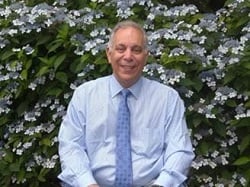Reflections: Transition Through Retirement
When will you be ready to retire?
By Glenn Mangurian BS, MBA and Joanna Cain, MD
Now, don’t be insulted? I’m not asking “Are you ready to be set out to pasture?” Today, that question prompts another question, “What do you mean by retirement?”
In the past, retirement was portrayed as a formula; work hard, save money, stop work, move to a warm climate and play. This transition was referred to as the “golden days of retirement” and reinforced the notion of a separate life stage that comes after a productive working life. This vision of retirement was all about retreat, withdrawal and then death. In academic medicine, having spent so much time focusing on our careers, abandoning all that expertise and intellectual interaction for “retirement” doesn’t fit either. The idea of “golden years” doesn’t interest either of us.
Today, some say that 60 is the new 50. I’m not sure about that but it isn’t the old 60. We are card carrying “baby boomers”. Boomers' beliefs about retirement are somewhat different from those of our parents'. I’d like to live 20, 30 or 40 more years of life after retirement AND have a meaningful contribution to others continue.
So first, we need to retire the notion of retirement as the “end of meaningful life” and replace it as a time for less work and more meaningful pursuits. For some the new retirement is the opportunity for “second acts”. For others, it is the reward of an accomplished career to relax. All of this assumes that we are financially ready – we’ve saved enough to live the life style we want for the rest of our lives. A financial advisor can construct a spreadsheet with some assumptions to advise you of your financial readiness.
Just as important is emotional readiness. If you are like us, you’ve worked hard, maybe even raised and educated a family, mentored several generations of students and faculty, and think some ‘time out’ sounds fair enough. This is a common attitude for those who have been in the workforce for three or more decades without a significant break. Most of us still have a lot to give and find that active engagement with the world around us is what makes us happiest. It is hard to imagine how this will look outside of science and medicine.
The later years of our lives have the potential to be the most fulfilling of all. If we get rid of the notion of a formal stopping point called retirement and reconsider how we can best mix work, play and family, our creation of this life stage is likely to be positive. We need to be financially ready and emotionally ready – both of which need to be worked now. As the saying goes “when you’re ready, you’re ready”. Good luck.
Reflections on Your Readiness to Retire
• What is your new definition of retirement?
• What are the dimensions of your readiness?
• How ready are you to retire?
• What will make this phase meaningful for you?

Glenn Mangurian (MBA, UMass Amherst) is a semi-retired business consultant new senior citizen. He spends his time consulting and teaching leadership as an adjunct faculty at UMass Amherst and Lowell.
Have you read other Reflections?
- Why are transitions so difficult?
- When will you be ready to retire?
- How do I prepare for retirement beyond the financial?
- What does transition to retirement look like?
- How does a couple prepare for retirement?
- What type of retiree might you become?
- This is not your parent's retirement
- Developing a Strategy for Succession
- Why Do Academic Faculty Retire?